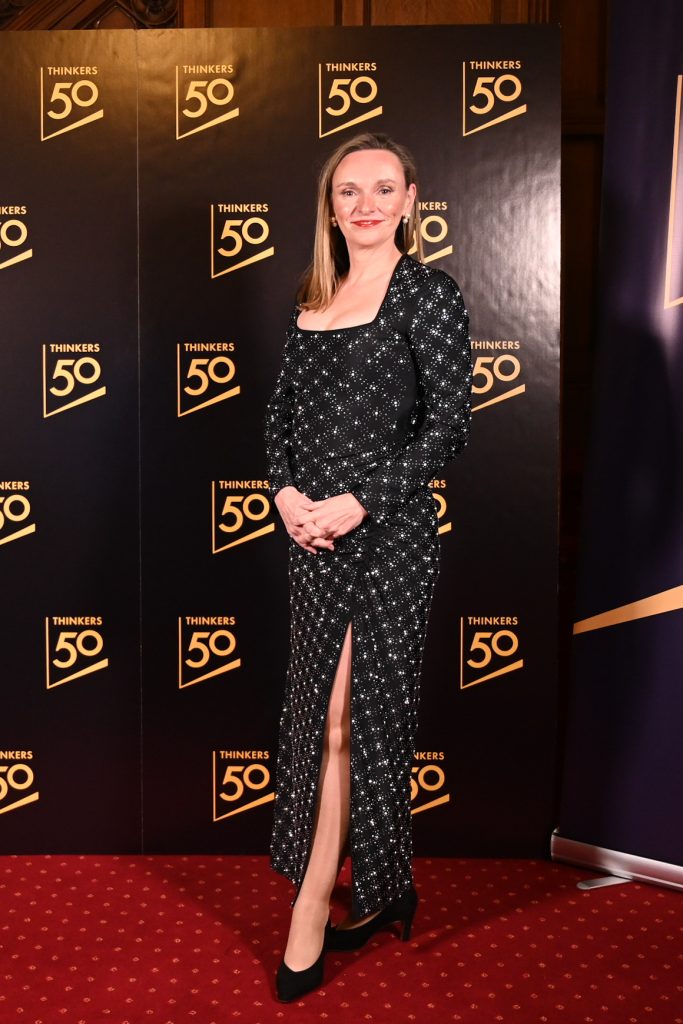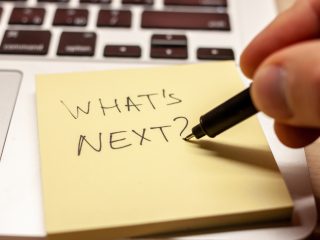I get the same puzzled reaction almost every time I say there won’t be even one printed copy of the book.
By Caroline Stokes, Author of AfterShock to 2030: A CEO’s Guide to Reinvention in the Age of AI, Climate, and Societal Collapse
This is my “OMG — my new digital-only book on leadership for the age of AI, climate and societal transition brought me to the Thinkers50 Leadership Award shortlist” photo.

Hold on. Did you say digital only?
Why?
Because leadership decisions shouldn’t harm the planet — including how we publish, learn and read.
When I told my publisher and practically everyone I speak with that I didn’t want even one printed copy — not even for the Library of Congress — I got what has now become a predictable reaction.
I usually get the puzzled what planet are you on? look, followed by the same solution-oriented questions to a traditional business model:
“But some publishers print on recycled paper. Can’t you use that?”
“What about a limited run?”
“But you can do print-on-demand?”
And the final one breaks my heart: “But I love to feel the book in my hand.”
Oh, I get it. But my answer every time: “No. I can’t allow not even one single carbon-holding tree to be pulped.”
Look at where we are now:
1. Net Positive authors Andrew Winston and Paul Polman are #1 in the Thinkers50 ranking. Amy Edmondson — whose work on psychological safety has become everyday leadership language — is #2.
If leaders can absorb and implement psychological safety, they can absorb and implement carbon responsibility. Right?
This principle has been years in the making for me. I couldn’t write a book asking CEOs to reinvent their operating systems for the AI-and-climate age and then publish it in the most carbon-intensive format available. Right?
A print edition — even “recycled” — still feeds the same supply chain. Trees are our most powerful natural carbon storage, and I wasn’t willing to extract from the planet after Earth Overshoot Day on July 24th, 2025.
2. COP30 is happening right now and as Dr Parag Khanna posted this past weekend, A&R — adaptation and resilience — is the leadership mindset and language we need.
3. On Saturday, the headline of this letter in The Observer said what I wish every boardroom took seriously: “The world must unite around a climate plan.” Frankly, and this is what my book says, every CEO and board should treat that as DEFCON 2 warning. This is organizational insurance time: build relevance through strategy or choose irrelevance by ignoring it.
4. If that wasn’t enough, TIME Earth Award winner Ayana Elizabeth Johnson urged us to evolve from hope to creating strategy. In fact, she F-bombed: “F**k hope — we need a strategy.” Her acceptance speech can be seen on LinkedIn.
What you do makes a difference
So here’s my message to the publishing industry and to authors everywhere: a digital-only book is a strategy and readers can make a conscious decision too, just like the global initiative Meatless Mondays – to reduce impact one choice at a time.
Last but not least, follow Erinch Sahan’s work at the Doughnut Economics Action Lab. He’s helping businesses and institutions redesign themselves to operate within planetary boundaries. If you want to see the urgency, start with his visual presentations.
As Jane Goodall said: “What you do makes a difference, and you have to decide what kind of difference you want to make.”
And, as my old friend Simon Humber — who is no longer with us — once asked me: “What are you going to do about it?”
Someday soon, decisions like being digital only will be mainstream, but only if you choose to become digital curious by using the apps already on your devices.
AfterShock to 2030: A CEO’s Guide to Reinvention in the Age of AI, Climate, and Societal Collapse is available with an approximate 0.3lb carbon footprint on Kindle, Audible, Spotify, and Apple Books.




